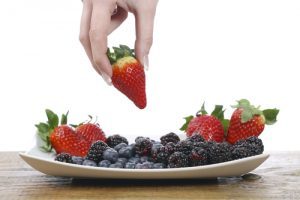Hey, there! Dr. Alan Christianson here, and thanks so much for taking the time to ask some questions. It shows you’re really trying and wanting to sort this stuff out. Hearing that, lights me up! I am here to make this easier for you and am totally jazzed to assist. We have a great question about sweeteners. Is coconut sugar good stuff, or what is safe to use as a sweetener? Great question, and I want to go into a few points to make some sense of this.
It is helpful to understand that the taste of sweet is a calibrated taste. What I mean by that is the number of sweet taste buds you have, and how the nerves respond to them, changes rather promptly. A friend, JJ Virgin, had a show, called “Freaky Eaters.” I remember one episode where a woman ate sugar. I know that does not sound shocking, but this woman ate sugar by the spoonful. That is pretty much all she ate for years. Her health was pretty wrecked because of this. JJ tried to get her to taste other foods. For example, JJ gave her some very fresh, ripe mango, which is the sweetest tasting fruit you can imagine. The woman tasted the mango and thought it was very bitter and repulsive. I would imagine it tasted to her like bitter Chinese herbs. That was not psychological but a very real effect of her taste buds and taste apparatus. They were so numb. The more you taste heavy, powerful, intensely sweet things, the more you numb yourself to the sweet taste and the less you experience it easily. The cool thing was that in just over a week, she revisited that mango. This was after some tough days of eating foods that didn’t naturally taste good to her, but she stuck with it, and the mango was a whole different experience for her. At the same time, she also tasted some straight sugar and thought it was repulsively sweet.












